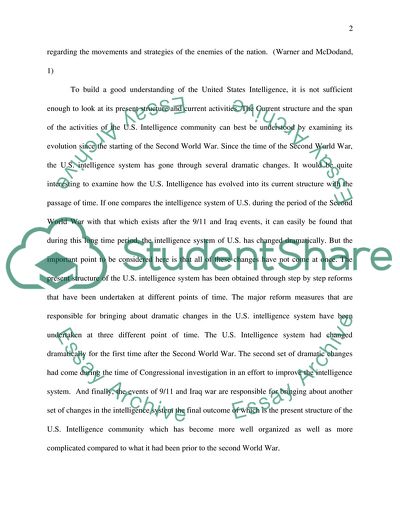Cite this document
(History of U.S. Intelligence Research Paper Example | Topics and Well Written Essays - 2500 words, n.d.)
History of U.S. Intelligence Research Paper Example | Topics and Well Written Essays - 2500 words. Retrieved from https://studentshare.org/social-science/1724136-history-of-us-intelligence
History of U.S. Intelligence Research Paper Example | Topics and Well Written Essays - 2500 words. Retrieved from https://studentshare.org/social-science/1724136-history-of-us-intelligence
(History of U.S. Intelligence Research Paper Example | Topics and Well Written Essays - 2500 Words)
History of U.S. Intelligence Research Paper Example | Topics and Well Written Essays - 2500 Words. https://studentshare.org/social-science/1724136-history-of-us-intelligence.
History of U.S. Intelligence Research Paper Example | Topics and Well Written Essays - 2500 Words. https://studentshare.org/social-science/1724136-history-of-us-intelligence.
“History of U.S. Intelligence Research Paper Example | Topics and Well Written Essays - 2500 Words”, n.d. https://studentshare.org/social-science/1724136-history-of-us-intelligence.


